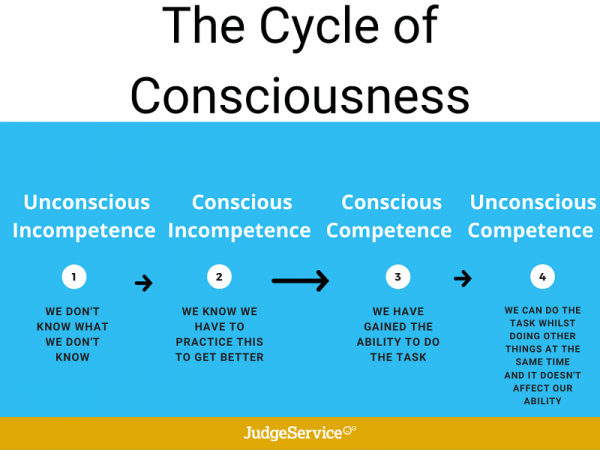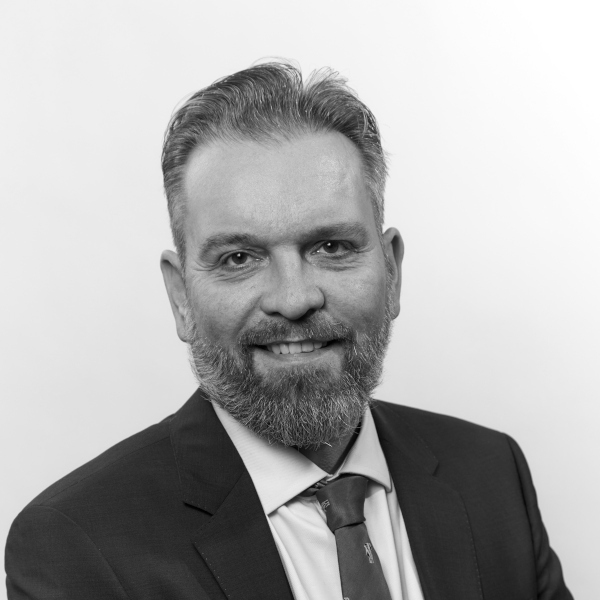Perfection is subjective
Let’s start by thinking about how amazing it is, what we can achieve, just by trying.
We’re such a versatile species that we can get an awful lot done!
However, at some point, we become aware of our personal limitations and then we have to learn technique, which is where practise makes permanent comes into this.
The Cycle of Consciousness
When we first learn to do something, for example, driving, we are “unconsciously incompetent” – meaning we “don’t know what we don’t know”.
We can try, but we aren’t aware yet of what skills we lack.
I remember in my first driving lesson, I managed to master the biting point on the clutch and set off, but I had no idea how to steer properly, it turned out that steering a car was a lot different from steering a go-kart. So, I drove my driving instructor's car straight into a curb!
I then became “consciously incompetent”, I knew that I had to put some hard work and practice into this to get good at it.
Over time, we gather what is called “conscious competence”, as we practice and concentrate on the task at hand, we become able to do it well.
The final step is “unconscious competence”.
By the time most of us have been driving a while we get so used to the actions of driving that we can do other things at the same time like: hold a conversation, listen to the radio, or watch the satnav and it doesn’t affect our ability to drive.
This cycle, which happens in many areas of life, like starting a new job, is what practice is all about.

Going from technique to ability.
The reason why I say Practice makes Permanent and not perfect is because of 4 reasons.
- Practice isn’t what you do when you are good, it’s what makes you good. According to Malcolm Gladwell – a renowned author, journalist, and public speaker.
- Perfect is subjective – one person perfect, may not reach the standards of someone else’s. If you compare your ability to everyone else’s definition of perfect, you might never reach it.
What happens if what you practice, isn’t correct in the first place. Then you are practising a weak ability.
Sarah Kelly – "Practice does not make perfect. Practice makes permanent. Repeat the same mistakes over and over and you don’t get any closer to Carnegie Hall".
- Capability – you might want to be the next Jimmy Hendrix, but you might just not have those skills in your locker – and that’s the reality of life.
What we do know is that as long as you pick the right skill, and you practice and practice, you will get better.
So how does this work in sales?
Salespeople tend to be (not all of them) impatient and tend not to like practice or training.
Many I’ve come across spew the line “you don’t pay me to practice, you pay me for deals”, and while this may be true, the more you sharpen the knife the better you perform.
There’s a saying by Abraham Lincoln - “Give me 6 hours to chop down a tree, I’ll spend the first 4 sharpening my axe”.
Salespeople would like a magic wand, but we need to stamp that thought process out of them and develop the expertise to impact their productivity.
If they don’t practice, then they won’t improve. The top salespeople will really look for their skills and relentlessly use them. Whether that’s making calls, generating appointments, or closing deals.
Daily practice is what your salespeople need. Just like an olympian needs a great coach, salespeople need great sales leaders to push them.
As leaders, we need to encourage and recognise their training success as well as their commissions. Most salespeople want to do well and love the commission, but if they can be recognised for doing well in all parts of their job then the sky’s the limit for them.
Practice makes permanent isn’t just about developing skills, but it can also make a permanent difference to your bottom line if it is implemented properly.

Are you enjoying this blog series? Subscribe to our email alerts to be notified when a new blog is published!




